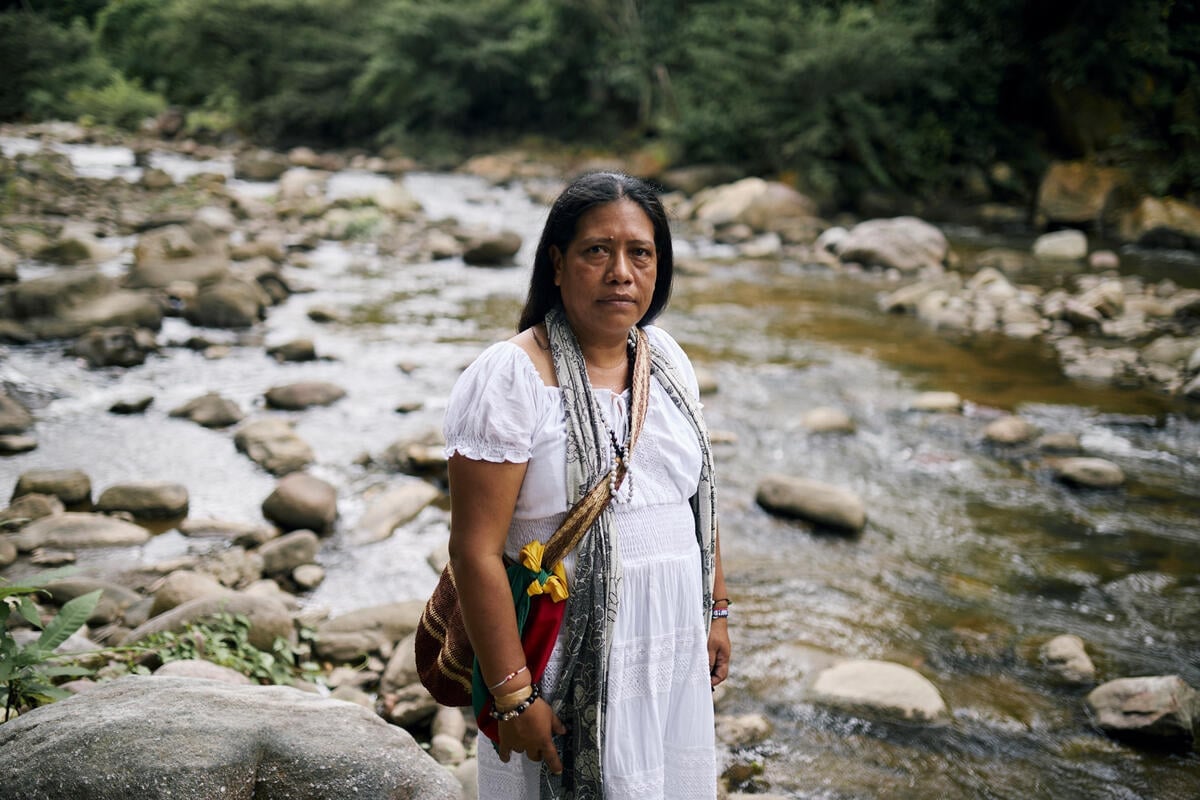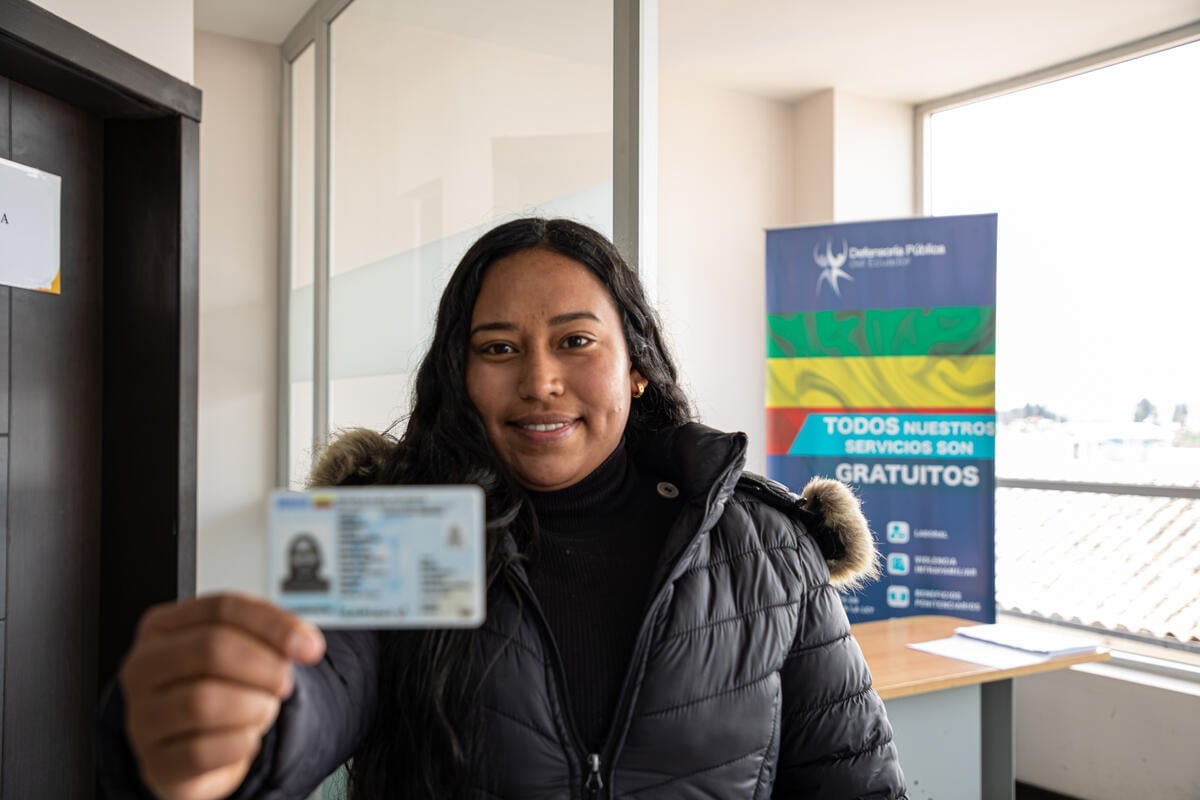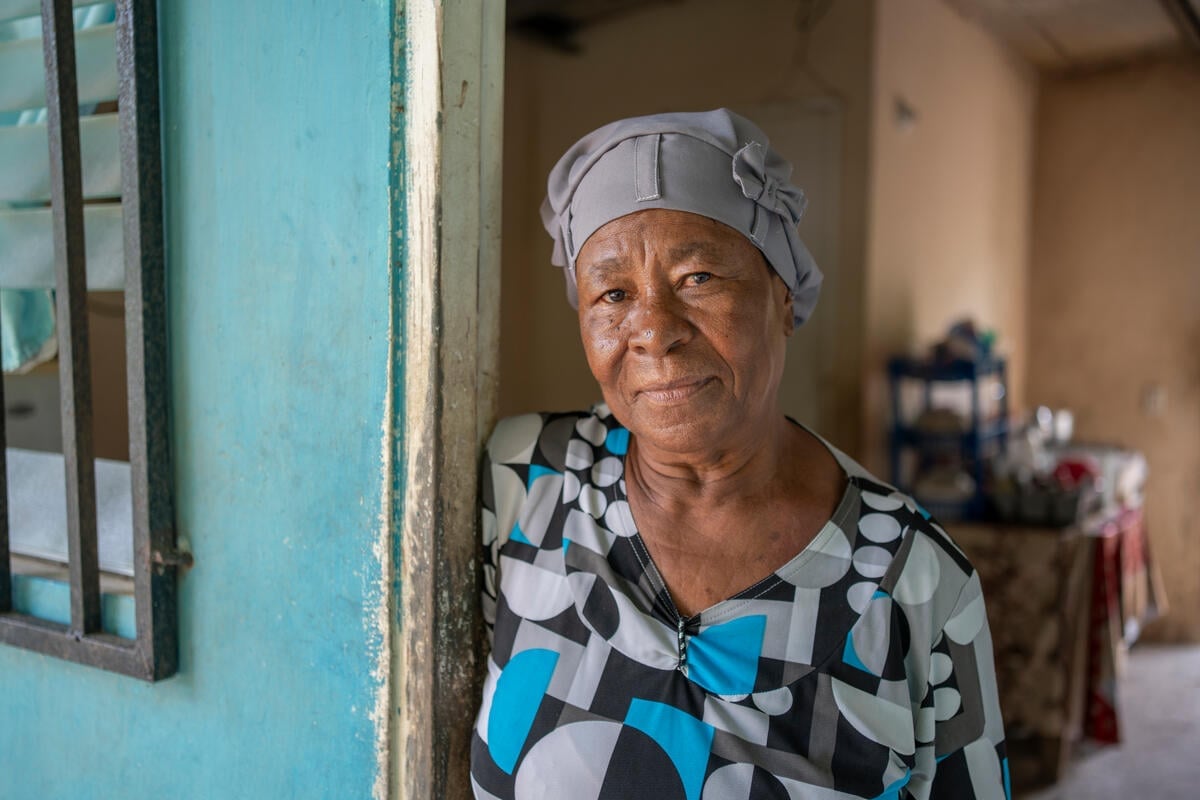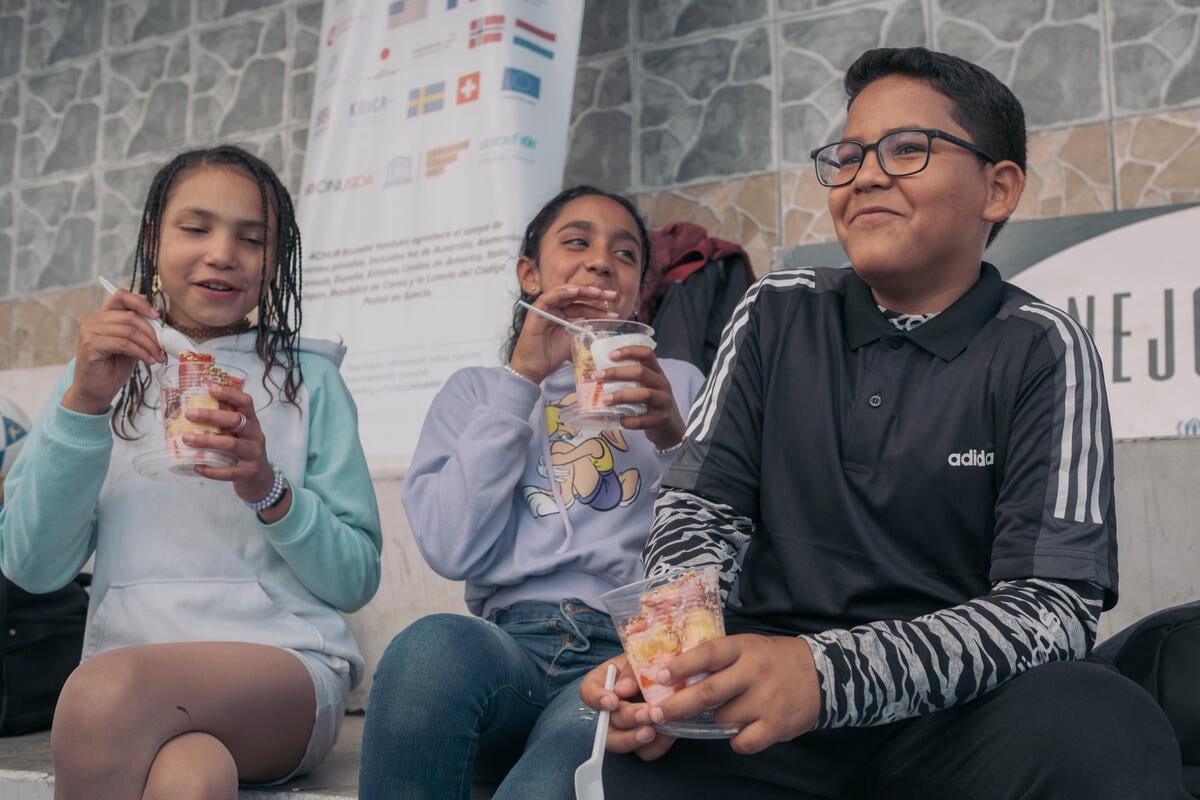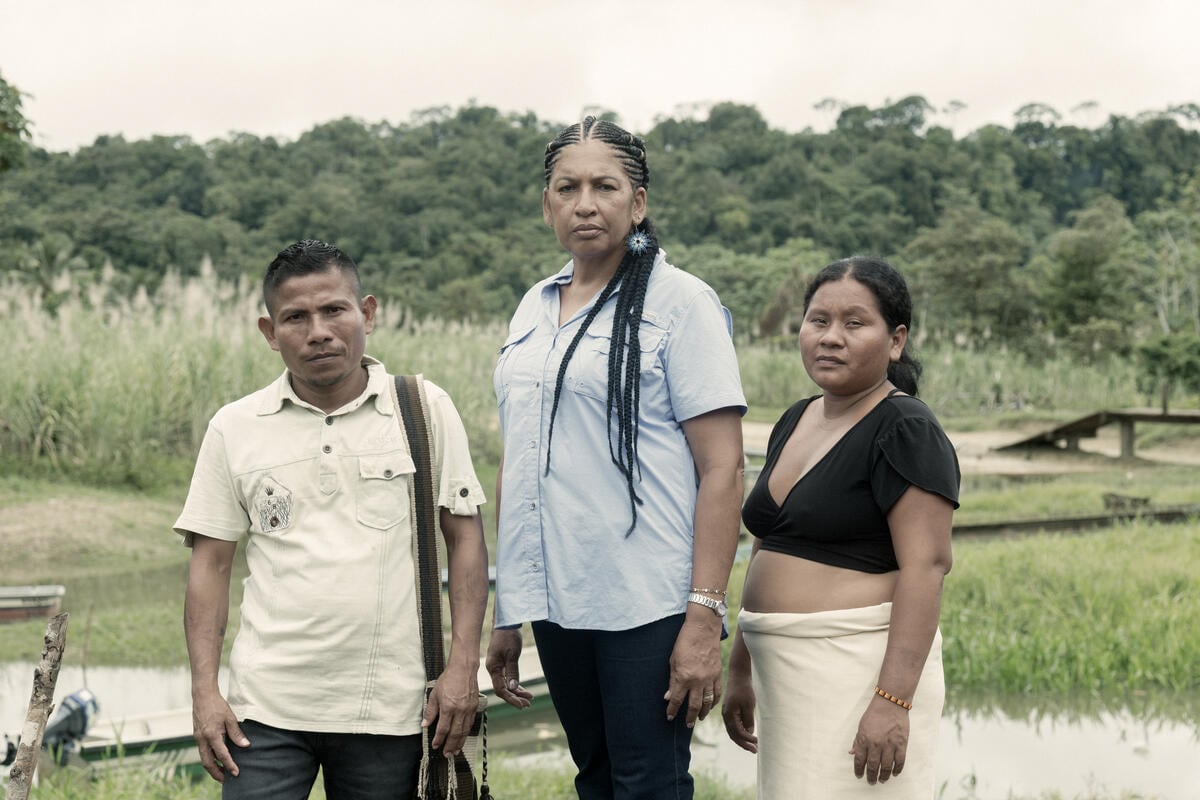Colombians flee to Ecuador to escape upsurge in violence
Colombians flee to Ecuador to escape upsurge in violence

LAGO AGRIO, Ecuador, November 15 (UNHCR) - The UN refugee agency said on Tuesday that more than 2,000 Colombians have fled their homes in the past three weeks, to escape the latest upsurge in the violence in the southern departments of Putumayo and Nariño.
Some have been forced to move to other parts of Colombia, swelling the ranks of the country's two million internally displaced people, accumulated over four decades of unrest. Others have fled across the border to neighbouring Ecuador.
Over the weekend, some 600 Colombians arrived in the town of San Lorenzo in the Ecuadorian province of Esmeraldas, fleeing violent confrontations in Nariño Department. "It was the single largest influx so far this year," UNHCR spokeswoman Jennifer Pagonis told reporters in Geneva on Tuesday. "The new arrivals in Ecuador said hundreds more could be following."
Some of the newcomers arrived badly wounded and were taken to local hospitals for medical attention, UNHCR said. One hospital reported one death as a result of injuries. The local authorities have made four buildings available for shelter, and the Ecuadorian Red Cross and other organizations are providing food to the newcomers. UNHCR staff are registering asylum seekers among the new arrivals.
Further east along the border, the Ecuadorian town of Lago Agrio has also seen a marked increase in the number of Colombians seeking asylum in the past three weeks. Many say they fled because of violent fighting between armed groups in Putumayo Department, while some of the asylum seekers are reporting they were victims of threats, intimidation and physical violence.
Octavio still cannot believe he has had to flee his home. Like most of the people arriving in Lago Agrio, he is a member of the Kechwa indigenous group. He comes from San Marcelino, a small indigenous reserve located on the San Miguel River, which forms the border between Colombia and Ecuador. In San Marcelino, he worked the land and sold fruit and vegetables at the local market. Last month, this peaceful existence came to an end when members of an irregular armed group entered the reserve and kidnapped seven girls, aged between 14 and 18.
"The men came back a week later," Octavio told UNHCR staff in Ecuador. "They went into our houses, destroyed everything and threatened us. They beat up our neighbour very badly. I called for my wife and we ran to hide in the hills. Then we realized that many other people from the village had also taken refuge in the hills."
Together, they decided to cross the river and take refuge in Ecuador, where for a few days they remained hidden in the Amazon jungle.
"They were sleeping under trees and eating yucca and bananas from the forest when we found them," said Oscar Butragueño, head of the UNHCR office in Lago Agrio. "We had heard from our colleagues on the other side of the border that a large number of people had fled, so we sent teams out to go and look for them. The challenge for us now is how to help these people, especially as there are a lot of children among them."
Over the next few days, the teams found several other groups scattered along the San Miguel River. About one hundred people are now living in the UNHCR shelter in Lago Agrio, while others have chosen to stay in the makeshift camps they have built with plastic sheets provided by the UN refugee agency, which with the help of the local authorities, the Red Cross and the World Food Programme, has also distributed food rations and other relief items to the newcomers.
In all, some 200 people have registered with UNHCR in Lago Agrio since late October. However, the number of people who have crossed the border could be much higher since many Colombians are choosing not to register - either because they plan to go home as soon as possible, or because they are too scared to make contact. UNHCR estimates there are some 250,000 Colombians of concern in Ecuador. However, only 32,000 of them have registered as asylum seekers.
Not all the new arrivals in Lago Agrio believe they will be able to go home In the near future. Arcenio has been in Ecuador once before, when he fled another outburst of violence in Putumayo four years ago. That time, he returned home after six months, but he does not think he will take the same risk again.
"I have seven children," he says, "and this time I think we'll stay and rebuild our lives here. There are Kechwa communities here as well. Our children will be able to go to school and be taught in their own language as well as Spanish, so we'll be able to preserve our language, our culture, even if we never see our home again."
By Xavier Orellana in Lago Agrio, Ecuador
with Marie-Hélène Verney in Geneva



